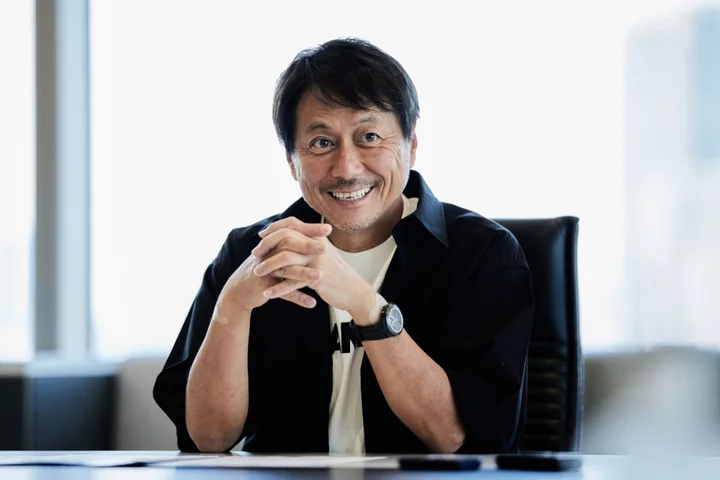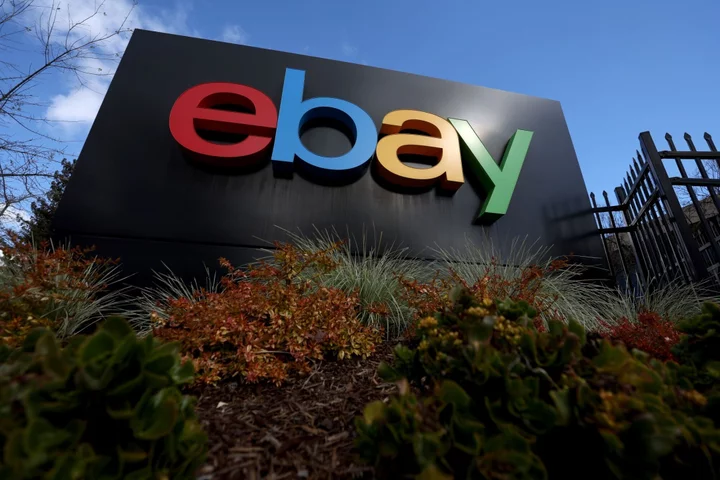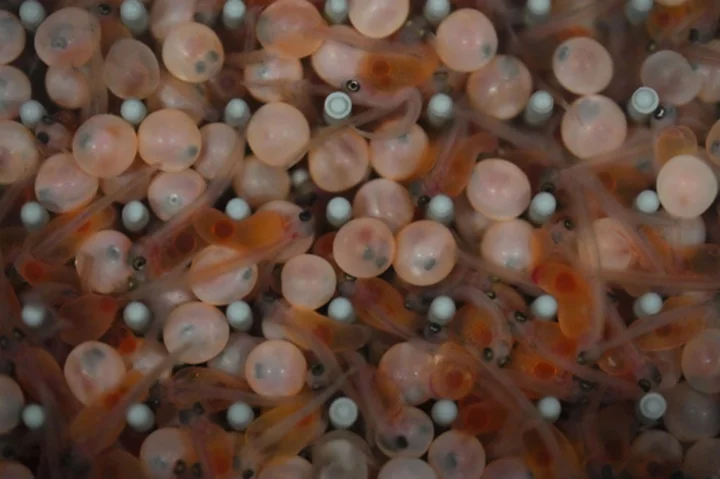Before he became a billionaire by transforming his father’s company into Netflix’s biggest competitor in Japan, Yasuhide Uno wanted nothing to do with the business.
His relationship with dad was fraught, to say the least.
Uno recounts an incident in his childhood when he was ill in bed. His father came home that day ordering his mother to stop caring for Uno and make him food instead, according to a 2020 biography. If the child died, they could always have more, Uno’s father told her.
After years of refusing to be involved in the business, Uno only agreed to take it over when his dad was on his death bed — and he felt he had no choice.
“I didn’t want to be like my father,” Uno was quoted as saying in the Japanese-language biography, whose title translates as The Bravery of an Entrepreneur.
“I had a strong desire to be a completely different entrepreneur,” he added in an interview in Tokyo.
A quarter of a century later, Usen-Next Holdings Co. operates a streaming service with more than 4 million subscribers and dozens of other businesses ranging from broadband internet to services for shops. Usen-Next’s stock has surged this year on record earnings, pushing Uno’s wealth to more than $1 billion at the end of last week, according to the Bloomberg Billionaires Index. The stock dropped on Monday, and he’s now worth $989 million, according to the wealth gauge.
Uno’s agreement to take command of the family business is far from the norm in Japan, where some 60% of companies surveyed by Teikoku Databank Ltd. have yet to find a successor. A record 487 small firms closed in the fiscal year ended March because of this, the market researcher said.
The company’s transformation under him is an example of a phenomenon pointed out by academics. A child is about 60% more likely to be an entrepreneur if a parent was, according to a paper published in 2014.
Yet as Uno tells it, his father, Mototada, wasn’t always a good example. Mototada was born into a family of Chinese immigrants who had moved to Japan before World War II. He established Osaka Usen Broadcasting in 1961, when Japan’s economy was booming. It sent background music by coaxial cable to shops, restaurants and other businesses. Usen is the Japanese word for cable.
Over four decades, Mototada steadily developed the company. By the time he died of cancer in 1998, Usen had a roughly 70% share of Japan’s cable music market.
But there was a catch. Usen had used millions of government-owned telephone poles for his cables without permission, Uno explained in the biography. It was another reason why Uno didn’t want the role.
Uno was also doing his own thing. He had set up a job agency called Intelligence Co. with three friends in Tokyo and was planning to take it public.
His mother pleaded with him to take over Usen. Even though Uno wasn’t the eldest son, he was his father’s preferred successor. Eventually, he relented and returned to Osaka, leaving his co-founders to run his firm.
“A part of me wanted to take on the challenge,” Uno said at Usen-Next’s headquarters in the upscale Meguro area of Tokyo. With its glass-walled offices and sofas, it looks more like a modern startup than a 62-year-old firm.
After Uno took over, the company’s survival hinged on bringing its use of the telephone poles within the law. But his father had soured relations with the government by ignoring its requests and warnings for years.
When Uno tried to make amends after almost three decades, officials didn’t want to know. They hung up when he called. “Why don’t you come back in a hundred years?” one told him, according to the biography.
Eventually, the government and Usen agreed on a plan to resolve the issue. Usen staff had to photograph and register cables connected to more than 7 million telephone poles. Even the most loyal employees bristled. At one point, a bloody straw doll was delivered to Uno’s doorstep as a death threat. But after a year, the job was done. Not long later, in 2001, Usen listed on the Osaka exchange.
Usen fell into difficulties again during the global financial crisis. As earnings worsened, it became unable to repay its debt. Under pressure from banks to offload loss-making operations, Uno had to sell the video-streaming service. In an unusual twist, he sold it to himself, paying for it with his own money. He was convinced it would later become a growth engine. Years later, in 2014, he listed the company, called U-Next, in Tokyo. Then in 2017, U-Next bought the legacy business, Usen.
Today, the Usen-Next group consists of some 25 companies. The cables now also provide broadband internet. The video-streaming business surged in popularity during the pandemic when people were stuck at home. It added 1.2 million new users last fiscal year, a 43% increase from the year before. It’s No. 2 in Japan after Netflix, according to research firm GEM Partners.
For Daisuke Aiba, an analyst at Tokyo-based brokerage Iwai Cosmo Securities Co., Usen-Next may be able to overtake the US giant in Japan because it offers a wider array of content tailored to Japanese subscribers.
“He built it into a business fit for a new era,” Aiba said. “He’s someone who knows how to push ahead with a plan.”
A representative for Netflix declined to comment.
Despite the growth in streaming, Usen-Next’s store-services business, which includes background music and payment terminals, still contributes the most to profit. Store services accounted for 46% of operating profit in the fiscal year ended August, compared with 29% for content distribution.
Usen-Next made ¥21.6 billion ($145 million) in operating profit on ¥276 billion in sales in the fiscal year ended August, both records. The company’s shares are up 66% this year, giving it a market value of about $1.4 billion. All six analysts covering Usen-Next recommend buying the stock.
But the business relies heavily on the 1.1 million distribution contracts that it has with stores. With the government’s decision last year to stop taking applications from retail businesses for support to help them through the pandemic, an increasing number of them are forecast to shut down.
“Any bankruptcies of these stores such as restaurants is worrisome because that’s the heart of the business,” said Hiroshi Namioka, chief strategist at T&D Asset Management Co., a unit of Japanese insurer T&D Holdings Inc.
Still, Uno says he doesn’t see any major threats to the business. And after 25 years in the job, 15 longer than his father asked for, he has no plans to step down. Uno says he now has deep respect for his father, because of his drive.
“Life has been a repetition of successes and failures,” he said when asked how he feels about his wealth. “At times people told me I’m great. Other times, I was told I should be dead. It doesn’t quite feel like a life of success.”
--With assistance from Shintaro Inkyo and Sohee Kim.
Author: Min Jeong Lee, Yoojung Lee and Yasutaka Tamura









